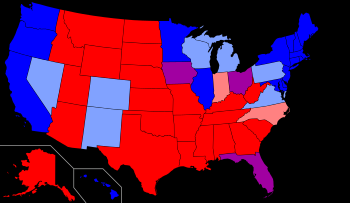Is this possible, and if not, what stops it from happening?
I want to say a few words about "what stops it from happening" and point out a short academic paper from January that has a little bit of insight. The paper looks at countries that transitioned to democracy in recent history then compares where they are today, and what factors might contribute to that change. Not directly comparable to the United States, but hopefully still offers some insight.
The paper divides these changes into several categories, though the ones relevant to this discussion are breakdowns, erosions (similar to breakdown, but still have "reasonably free and fair elections" where "fair" simply means an accurate vote count), and stagnations.
(a detour to discuss action to "stop it from happening")
I wanted to highlight one line from the description of the "breakdown" category that says
The most common route to breakdown among third-wave democracies, however, has been an incremental path without a clear breaking point.
This reminds me of the Douglas quote:
As nightfall does not come all at once, neither does oppression. In both instances, there is a twilight when everything remains seemingly unchanged. And it is in such twilight that we all must be most aware of change in the air — however slight — lest we become unwitting victims of the darkness.
- To Young Lawyers Section of the Washington State Bar Association, The Douglas Letters : Selections from the Private Papers of Justice William O. Douglas (1987), edited by Melvin I. Urofsky and Philip E. Urofsky, p. 162.
I would look into the answers at What is the most effective way to participate democratically as a regular citizen in a stable parliamentary democracy? and How can the common citizen defend democracy principles? for further reflection.
(back to the paper, and discussing causes)
They do some analysis on the data and report on the results:
Our calculations showed that regimes that started off with a higher level of liberal democracy, that were geographically surrounded by democracies, and that experienced better rates of economic growth were less likely to break down ...
Interestingly, they find the connection "inconclusive" between democracy breakdown and being a wealthier country. They also give the disappointing note
Against expectations, prior democratic history and levels of state capacity show no association with breakdowns.
My takeaway from the paper is that in order for democracy to survive, there needs to be internal and external pressure to help "push" it along. (Note, I phrase this as "pressure" since this is all dependent on country, culture, and current moment in history, and really none of this should be taken in absolutes).
What I mean by external pressure is interaction with other/neighboring countries should be smooth. I think this is primarily based on economics, and what system of government would allow this. I already got sidetracked here and cut a few paragraphs not entirely relevant, but I just want to note that this is not just economics focused on goods, but other aspects such as citizens working across a border or overseas, immigration and emigration, trade agreements, monetary and fiscal policy, etc. and how a particular form of government might affect those things.
Internal pressure would be citizen involvement (I think @Fizz answer highlights this nicely), but also checks and balances. The paper I cite here makes a passing reference to Uribe in Colombia, where the Constitutional Court rejected a referendum that would have allowed him to run for a 3rd term. These kinds of checks and balances are important to avoid descent into autocracy, which I think is the main concern of the original question.
Reference:
Mainwaring, Scott & Bizzarro, Fernando. "The Fates of Third-Wave Democracies." Journal of Democracy, vol. 30 no. 1, 2019, pp. 99-113. Project MUSE, doi:10.1353/jod.2019.0008
or online at https://muse.jhu.edu/article/713726
